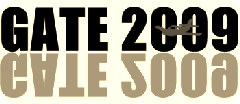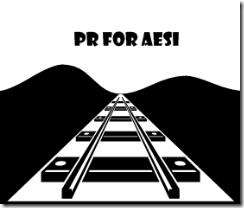Tata Consultancy Services (TCS) on Wednesday announced its partnership with Swedish defense and aerospace company, Saab, for the establishment of Saab's Aeronautical Design and Development Centre (ADDC) in India.
The Tata Group has been betting on the defense and aeronautics space in a big way of late. Earlier this year, Tata Advanced Systems, along with TCS and Tata Power joined forces with the UK-based EADS Defence and Security to bid for the Indian Army's $1 billion advanced tactical communications system project.
At around the same time, TAL Manufacturing Solutions Ltd, a wholly owned subsidiary of Tata Motors Ltd, entered into an agreement with Boeing for manufacturing structural components for the latter's 787 Dreamliner airplane program. Saab's ADDC, to be set up in partnership with TCS, will create design and development capabilities within India for both military and civil aeronautical applications.
The design and development centre will address market opportunities in areas such as aero structures, aero systems, avionics and after market support. This co-operation will also allow Saab to set a footprint in India, with TCS, to capture opportunities emerging in the aerospace and defense sector. Commenting on the partnership, S Ramadorai, CEO and MD, TCS said, "This partnership has a strong blend of Saab's technology solutions and TCS's global engineering model, which will help address growing opportunities in the aerospace and defense sector."
via this
Satyam Computers, India's fourth largest IT company is now looking to be among the top two engineering service providers and capture a market share of 10 percent by 2012. As part of this vision, the company plans to focus on select verticals like aerospace, automotive, consumer electronics, semiconductors and farm equipment.
Satyam is also concentrating attention towards geographies like U.S., Germany, France, Japan and UK. The other key strategy is positioning the company as a leading engineering service provider.
The revenue of R&D and product engineering services was 175 million out of total global service revenue of $2 billion, in 2007, representing 9 percent of the total revenue. IDC India, Infotech analyst firm, sees that there would be a significant growth in the share of the R&D and product engineering to the total revenue.
more here
Setting up an aerospace park in Chennai
The Confederation of Indian Industry (CII) had submitted its proposal for setting up an aerospace park in Chennai. The proposed park would need 4,000 acre of land and attract an investment of around $10 billion. The park would create over 100,000 jobs.
The domestic aviation industry needs over 1,000 aircraft in the next 10 years and is expected to invest over $100 billion. This would be the right time for the aeropark.
The European aerospace industry is exploring a slew of partnerships with Indian industry in the areas of civil and military aircraft manufacturing, Martin Kraus, vice- president (Defence Electronics), EADS Defence and Security, the Munich-based holding company of Airbus said here on Friday.
A combination of tough competition, cost pressures and high oil prices in the civil aviation sector and shrinking Defence budgets in European nations and relaxation of export regulations could see a new ballgame emerging in aircraft development partnerships with India, Mr. Kaus told The Hindu on the sidelines of the "Connect 2008".
"Our defence strategy is very much to build cooperation with India and facilitate manufacturing tie-ups with engineering companies here," said Mr. Kraus.
read more here
India can tap outsourcing avenues in aerospace: Airbus
With the European aerospace industry looking at cutting costs, India can become an important outsourcing destination, an official of aircraft major Airbus Industries said here Friday.
"Airbus is into cutting costs by outsourcing components. In future, we will outsource engineering as well as production jobs," Martin Kraus, who heads Airbus A400 Military Systems, said here.
According to him, the challenges faced by Airbus in the civilian segment are increased competition from aircraft manufacturers in Brazil and China, low value of the American dollar and volatility in oil prices.
In the military segment, the defense budgets of European countries are coming down, Kraus said during his address at Connect 2008, an information, communication and technology meet organized by the Confederation of Indian Industry (CII).
Dwelling on how Indian companies could take advantage of the outsourcing opportunity that Airbus presents, Kraus said India had to improve its skills in the spheres of avionics, designing and engineering.
According to a CII study, the aerospace industry globally spends $60 billion on engineering every year. India accounts for less than one percent of the total offshoring in the engineering services space.
It will have a design and engineering city, manufacturing centre, satellite MRO facility, R&D testing facility and infrastructure support systems, according to Subbu D Subramanian, chairman, Connect 2008, CII's annual information, communication and technology (ICT ) event, and director and senior vice-president, Satyam Computer Services.
John W Douglass, former president and chief executive officer, Aerospace Industries Association of America, in his keynote address said around 300,000 workers were expected to retire from the US aerospace industry in the next 10 years and these jobs have to be filled. India is well positioned in this space, thanks to the number of educational institutes, he added.
Currently, there are about 700,000 workers employed in the US aerospace industry and the average age is more than 50 years. They account for one per cent of the US population and manufacture 50 per cent of the world's fleet. The industry contributed $56 billion to the US economy, which is the single-largest by any industry.
There is a gap in supply and demand for manpower. Schools and other institutions are not producing enough number of graduates to fill the gap. While the rest of the world is progressing in education, the US is not doing so in knowledge, technology, maths and science areas.
India has a highly-educated population and they are highly competitive which can supply aero/mechanical engineers, software engineers, program managers, skilled trades, Douglass said.
more here












